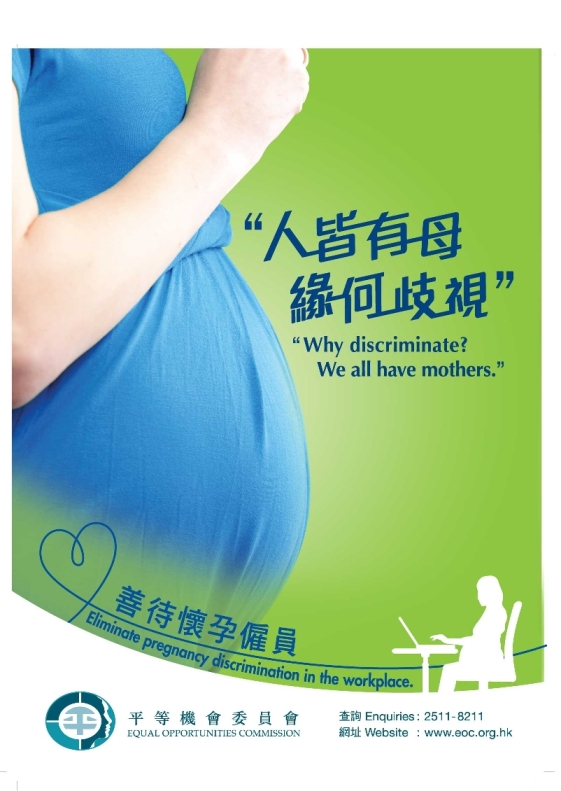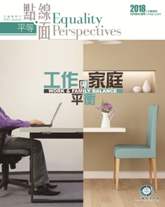
Like other sectors in society, the sports sector is not immune to abuse and harassment, which can indeed happen in all sports and at all levels. The issues of sexual harassment are further complicated as the acts often involve the power dynamics between coaches and athletes, and physical contact with the athletes. Last year, hurdler Miss Vera LUI Lai-yiu revealed on the social media that she was sexually assaulted by her coach during her teens. The incident triggered widespread discussion in the society and turned the spotlight on sexual harassment in the sports sector.
The IOC Consensus Statement: Sexual Harassment and Abuse in Sport (2006) states that “Everyone in sport shares the responsibility to identify and prevent sexual harassment and abuse and to develop a culture of dignity, respect and safety in sport. Sport organisations, in particular, are gatekeepers to safety and should demonstrate strong leadership in identifying and eradicating these practices.”
In order to raise awareness of the importance of eliminating discrimination and preventing sexual harassment in the sports sector, the Sports Federation & Olympic Committee of Hong Kong, China (SF&OC) and the EOC co-organised a seminar on 30 January, with support from the Home Affairs Bureau and the Leisure and Cultural Services Department. Attended by more than 200 representatives and staff members of various sports organisations and their affiliates, the seminar aimed at motivating sports organisations to develop anti-sexual harassment policies and mechanisms for handling related complaints.
Speaking at the seminar, EOC Chairperson Professor Alfred CHAN Cheung-ming pointed out that sexual harassment is a serious problem in our community and we must face it squarely. “In the past three years, the EOC received 233 complaints on sexual harassment. But since a lot of victims tend to remain silent, the problem might be more severe than we think.”
The EOC has been running an Anti-Sexual Harassment Campaign since 2013. Targeting at different sectors including the sports sector, the campaign features seminars and training activities, as well as guidelines on formulation of policies. Following the seminar on 30 January, the SF&OC and the EOC will organise two more workshops on preventing sexual harassment and handling related complaints for the sports associations in March 2018. The EOC will also continue to work with the sports sector, and assist organisations to put in place appropriate policies and measures for eliminating sexual harassment.
Read the media statement on the seminar
Read the EOC’s reference materials “Formulating Policy on Sexual Harassment in Sports Organisations”
Explore the Anti-Sexual Harassment resources of the EOC

On 26 January, the EOC issued legal proceedings under the Sex Discrimination Ordinance (SDO), Cap 480 in the District Court, on behalf of a woman (the Claimant) who previously worked for a company (the Respondent) as a clerk. The Claimant alleged that she had been discriminated against by the Respondent on the ground of her pregnancy by forcing her to resign, and later dismissing her after she resumed work from her sick leave for her miscarriage.
Under the SDO, it is unlawful for an employer to subject a woman to disadvantage or dismiss her on the ground of her pregnancy. Yet employment-related pregnancy discrimination remains one of the EOC’s most frequently received complaints under the Ordinance. Between 2015 and 2017, the EOC received 200 complaints on pregnancy discrimination, representing 38% of the total complaints received under the SDO. By taking this case to Court, the EOC hopes to raise public awareness of the rights of pregnant women under the SDO, and remind employers that it is unlawful to discriminate against an employee because of her pregnancy.
Read the media statement on the legal proceedings
Find out more about the protection from pregnancy discrimination under the SDO

The EOC has issued the spring issue of its half-yearly journal
Equality Perspectives, which was distributed through the
Hong Kong Economic Times in major business districts on 1 February.
Carrying the theme “Work and Family Balance”, the journal offers an overview of the Family Status Discrimination Ordinance, which came into force in 1997. In one of the features, we examine the government-led family policies in various places including Hong Kong, and the family-friendly practices adopted by some corporations in the city. In another, we explore the issue of support to carers of the elderly. As Hong Kong faces an ageing population, more and more resources will inevitably be directed to elderly care, and greater responsibilities will be imposed on employees having to take care of their elderly family members. We hope that by examining these issues in the journal, we can raise greater awareness among community members, and encourage more family-friendly policies in both public and private sectors.
Read the spring issue of the EOC journal Equality Perspectives
About the Family Status Discrimination Ordinance

The EOC made a submission to the Legislative Council’s Subcommittee on Rights of Ethnic Minorities on 22 January to provide recommendations on the “Administrative Guidelines on Promotion of Racial Equality”. The Guidelines were issued by the Constitutional and Mainland Affairs Bureau in 2010 to guide government functions and public bodies in promoting racial equality, especially in ensuring equal access to public services by ethnic minorities.
Given that the Race Discrimination Ordinance has been enacted for almost 10 years and that the Guidelines were issued some seven years ago, the EOC suggested in the submission that the Guidelines move towards a more proactive approach in achieving racial equality. Since the Guidelines are non-mandatory, the EOC believes there is a need to ensure the consistency of implementation across government functions and public bodies and to set up a monitoring system. In terms of content, the EOC recommends the Guidelines should cover key measures for government functions and public bodies to follow in order to promote equal opportunities in recruitment for ethnic minorities.
Read the submission
Read the “Administrative Guidelines on Promotion of Racial Equality”

 Like other sectors in society, the sports sector is not immune to abuse and harassment, which can indeed happen in all sports and at all levels. The issues of sexual harassment are further complicated as the acts often involve the power dynamics between coaches and athletes, and physical contact with the athletes. Last year, hurdler Miss Vera LUI Lai-yiu revealed on the social media that she was sexually assaulted by her coach during her teens. The incident triggered widespread discussion in the society and turned the spotlight on sexual harassment in the sports sector.
Like other sectors in society, the sports sector is not immune to abuse and harassment, which can indeed happen in all sports and at all levels. The issues of sexual harassment are further complicated as the acts often involve the power dynamics between coaches and athletes, and physical contact with the athletes. Last year, hurdler Miss Vera LUI Lai-yiu revealed on the social media that she was sexually assaulted by her coach during her teens. The incident triggered widespread discussion in the society and turned the spotlight on sexual harassment in the sports sector. On 26 January, the EOC issued legal proceedings under the Sex Discrimination Ordinance (SDO), Cap 480 in the District Court, on behalf of a woman (the Claimant) who previously worked for a company (the Respondent) as a clerk. The Claimant alleged that she had been discriminated against by the Respondent on the ground of her pregnancy by forcing her to resign, and later dismissing her after she resumed work from her sick leave for her miscarriage.
On 26 January, the EOC issued legal proceedings under the Sex Discrimination Ordinance (SDO), Cap 480 in the District Court, on behalf of a woman (the Claimant) who previously worked for a company (the Respondent) as a clerk. The Claimant alleged that she had been discriminated against by the Respondent on the ground of her pregnancy by forcing her to resign, and later dismissing her after she resumed work from her sick leave for her miscarriage. The EOC has issued the spring issue of its half-yearly journal Equality Perspectives, which was distributed through the Hong Kong Economic Times in major business districts on 1 February.
The EOC has issued the spring issue of its half-yearly journal Equality Perspectives, which was distributed through the Hong Kong Economic Times in major business districts on 1 February. The EOC made a submission to the Legislative Council’s Subcommittee on Rights of Ethnic Minorities on 22 January to provide recommendations on the “Administrative Guidelines on Promotion of Racial Equality”. The Guidelines were issued by the Constitutional and Mainland Affairs Bureau in 2010 to guide government functions and public bodies in promoting racial equality, especially in ensuring equal access to public services by ethnic minorities.
The EOC made a submission to the Legislative Council’s Subcommittee on Rights of Ethnic Minorities on 22 January to provide recommendations on the “Administrative Guidelines on Promotion of Racial Equality”. The Guidelines were issued by the Constitutional and Mainland Affairs Bureau in 2010 to guide government functions and public bodies in promoting racial equality, especially in ensuring equal access to public services by ethnic minorities.